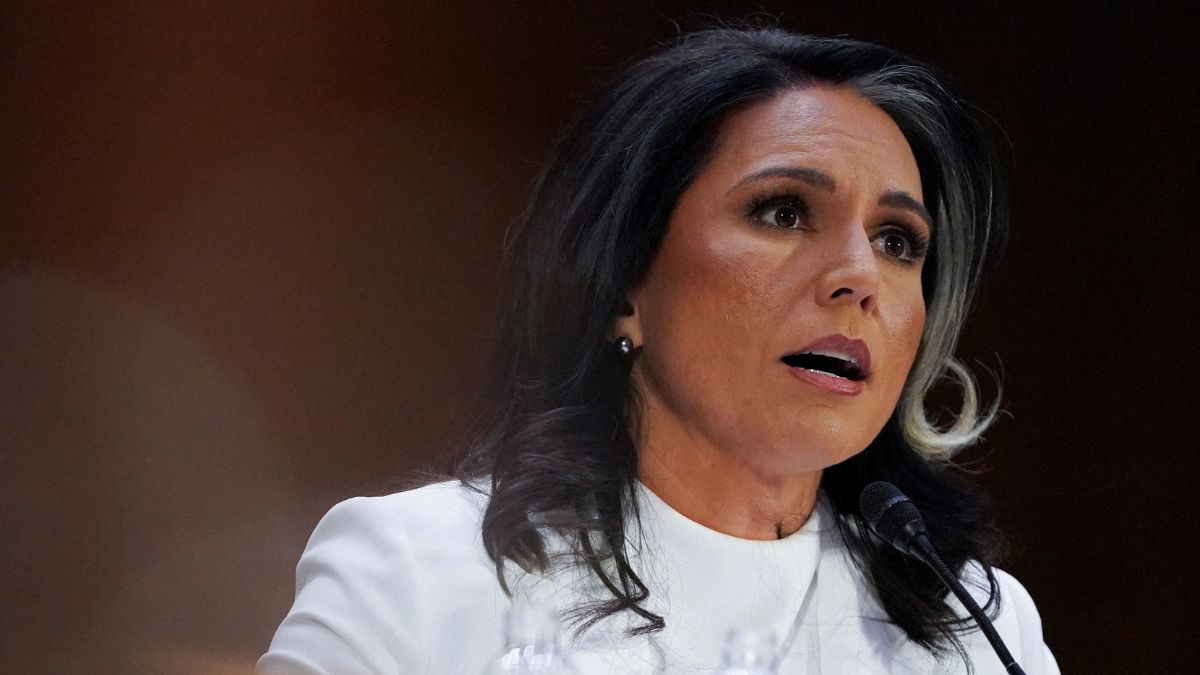Tulsi Gabbard was sworn in as the US Director of National Intelligence (DNI) on Wednesday after securing a narrow 52-48 Senate confirmation. Endorsed by President Donald Trump, Gabbard now takes charge of America’s 18 intelligence agencies, overseeing and coordinating their operations to safeguard national security.
The United States Intelligence Community (IC) functions under the Office of the Director of National Intelligence, ensuring that each agency fulfills its specialised role while contributing to a cohesive national security strategy.
As Director of National Intelligence, Gabbard will serve as the principal advisor to the president on intelligence matters. The DNI’s role is critical in ensuring seamless collaboration between agencies such as the Central Intelligence Agency, National Security Agency and Federal Bureau of Investigation among others.
The intelligence community’s responsibilities span foreign intelligence, counterintelligence, cybersecurity, military strategy and financial security, tackling evolving threats such as espionage, cyberattacks, and terrorism.
At 43 years old, Gabbard brings with her a distinguished military background, having served over two decades in the Army Reserve and deployed to Iraq as a combat veteran.
Here are the 18 intelligence agencies that make up the US Intelligence Community:
1. Office of the Director of National Intelligence (ODNI)
ODNI oversees and coordinates the entire intelligence community, ensuring information-sharing and operational efficiency among all agencies. It was established in 2004 following the 9/11 attacks to enhance intelligence collaboration and prevent future security lapses.
Impact Shorts
More Shorts2. Central Intelligence Agency (CIA)
The CIA is responsible for collecting foreign intelligence and conducting covert operations. It primarily engages in HUMINT (human intelligence) and cyber intelligence gathering, playing a key role in espionage, counterterrorism and geopolitical analysis. Unlike most agencies, it reports directly to the President and ODNI rather than a specific department.
3. National Security Agency (NSA)
The NSA specialises in signals intelligence (SIGINT) and cybersecurity, monitoring electronic communications globally to detect threats. It plays a critical role in decrypting foreign communications and protecting US government networks from cyberattacks.
4. Defence Intelligence Agency (DIA)
Operating under the Department of Defence (DoD), the DIA focuses on military intelligence and assesses the capabilities of foreign armed forces. It provides strategic intelligence to policymakers, military planners and combat operations.
5. National Geospatial-Intelligence Agency (NGA)
The NGA is responsible for geospatial intelligence (GEOINT), which includes satellite imagery, mapping and terrain analysis. It supports military missions, disaster response and national security operations through advanced imagery and data analysis.
6. National Reconnaissance Office (NRO)
Managing the US spy satellite programme, the NRO collects and analyses satellite reconnaissance data. It provides real-time intelligence on military movements, nuclear threats and global security developments.
7. Federal Bureau of Investigation (FBI) – Intelligence Branch
The FBI’s intelligence division handles domestic counterterrorism, counterintelligence and cybercrime. It investigates espionage, terrorism plots and organised crime within the United States while working closely with other intelligence agencies and law enforcement.
8. Department of State – Bureau of Intelligence and Research (INR)
The INR provides intelligence support to US diplomats, offering insights into global affairs and foreign policy developments. It plays a crucial role in diplomatic intelligence gathering and analysis.
9. Department of Homeland Security – Office of Intelligence and Analysis (DHS I&A)
This agency focusses on domestic threats, border security and counterterrorism. It assesses potential risks to the homeland and collaborates with state and local law enforcement to prevent attacks.
10. Drug Enforcement Administration (DEA) – Office of National Security Intelligence
The DEA’s intelligence unit targets international drug trafficking networks, tracking cartel activities and their links to terrorism. It provides intelligence to disrupt drug supply chains and organised crime.
11. Department of the Treasury – Office of Intelligence and Analysis
This agency specialises in financial intelligence, tracking money laundering, terrorist financing and economic sanctions violations. It monitors financial transactions linked to threats against national security.
12. Department of Energy – Office of Intelligence and Counterintelligence
The DOE’s intelligence division is responsible for securing nuclear technology and monitoring global nuclear proliferation. It assesses foreign threats related to energy infrastructure and nuclear weapons programmes.
13. US Army Intelligence and Security Command (INSCOM)
As the army’s intelligence branch, INSCOM provides battlefield intelligence, electronic warfare and counterintelligence support. It plays a crucial role in tactical and strategic military operations.
14. US Navy – Office of Naval Intelligence (ONI)
ONI is the primary provider of maritime intelligence, tracking foreign naval activities and assessing potential threats to US naval operations. It supports global security through intelligence on rival fleets and maritime strategies.
15. US Air Force – Air Force Intelligence, Surveillance and Reconnaissance (AF ISR)
This agency handles aerial reconnaissance, cyber warfare and surveillance. It operates advanced drones, satellites and other surveillance systems to gather intelligence on foreign adversaries.
16. US Marine Corps – Marine Corps Intelligence Activity (MCIA)
MCIA provides tactical and operational intelligence to Marine Corps missions specialising in expeditionary warfare and amphibious operations. It supports Marines with real-time battlefield intelligence.
17. US Space Force – Space Operations Command (SpOC) Intelligence
As the newest addition to the intelligence community, SpOC Intelligence monitors space-based threats including satellite security, missile detection and adversary activities in space. It plays a key role in securing US dominance in space operations.
18. US Coast Guard – Coast Guard Intelligence (CGI)
CGI focusses on maritime security, drug trafficking and border protection. It works alongside the Department of Homeland Security to safeguard US waters from illegal activities.


)

)
)
)
)
)
)
)
)



